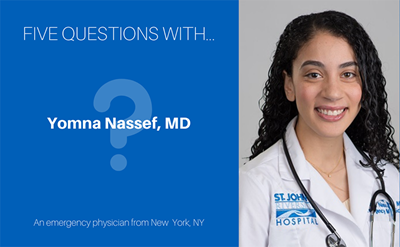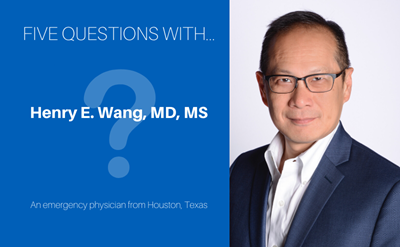Before I became an emergency physician, I was an emergency nurse. Early in my career I constantly peppered the doctor with questions. Why are we doing this procedure? Why are we prescribing that medicine and not another one? How did you know to test for that symptom to make a diagnosis?
I discovered that I wanted to practice medicine independently, but to do that I needed to learn more about the rationale behind clinical decisions. I first considered becoming a nurse practitioner (NP). But when I saw that requirements for an NP do not compare to the training and education necessary to be an emergency physician, my choice was clear. I decided to go to medical school.
One area the difference in training really stands out is the number of required clinical hours, or the time we spend with real patients. NP training requires about 800 clinical hours—that’s a significant amount of work. But, in medical school alone, a physician will complete about 3,000 hours.
A residency program is required after that, and the shortest residency takes three years to complete. By the time I finished my training to become a board-certified emergency physician, I had nearly 15,000 clinical hours under my belt.
To put that in perspective, I saw about 5,000 patients during my residency in the emergency department. I heard their concerns and learned to manage their treatment from start to finish. That experience was vital and informs the way I approach my patients today. Currently there is no residency requirement for an NP.
By no means am I disparaging nurses or any other nonphysicians. In my rural Virginia emergency department, the physician assistants (PAs) and the NPs are my eyes and ears. They are vital to every care team, and they are incredibly hard working and passionate health care professionals.
But whether it’s a prescribing decision or a treatment approach, a physician’s experience matters. My team works well together because we understand that I need to see everything that’s going on, especially when patients come in with cases beyond their training.
Consider an elderly man that came to my emergency department because he didn’t feel well. He reported that he was having trouble sleeping and the NP on shift that day was ready to chalk up the man’s discomfort to being over tired.
The NP didn’t know to test the man for unusually high levels of carbon dioxide right away, which can make people sleepy but can also signal a serious problem. By the time this patient came to my attention, he was not breathing correctly. He soon lost consciousness and slipped into a coma. We quickly put him on a ventilator so that he could breathe with the help of a machine.
Sometimes a diagnosis might seem straightforward but there’s always more to medicine than what’s in the textbooks. If I was able to see this patient just a little bit sooner, a severe issue could have been detected and maybe a ventilator could have been avoided.
Situations like this become a lot more complicated when physicians aren't there to lead care. I never want to see an NP tasked with taking care of a patient by themselves that is too complex for their training.
We should make sure that NPs and PAs can work as part of a physician-led team to the best of their ability, without exposing them to risk or responsibility that they are not prepared for.
Jessica Maerz, MD, is an emergency physician in Virginia.
 American College of Emergency Physicians
American College of Emergency Physicians







